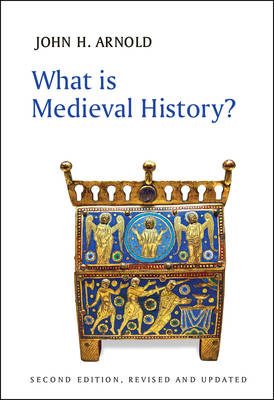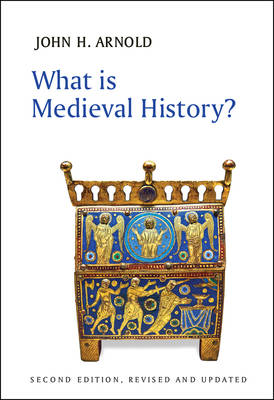
- Afhalen na 1 uur in een winkel met voorraad
- Gratis thuislevering in België vanaf € 30
- Ruim aanbod met 7 miljoen producten
- Afhalen na 1 uur in een winkel met voorraad
- Gratis thuislevering in België vanaf € 30
- Ruim aanbod met 7 miljoen producten
Zoeken
Omschrijving
Since its first publication in 2007, John H. Arnold's What is Medieval History? has established itself as the leading introduction to the craft of the medieval historian.
What is it that medieval historians do? How - and why - do they do it? Arnold discusses the creation of medieval history as a field, the nature of its sources, the intellectual tools used by medievalists, and some key areas of thematic importance from the fall of the Roman Empire to the Reformation. The fascinating case studies include a magical plot against a medieval pope, a fourteenth-century insurrection, and the importance of a kiss exchanged between two tenth-century noblemen. Throughout the book, readers are shown not only what medieval history is, but the cultural and political contexts in which it has been written.
This anticipated second edition includes further exploration of the interdisciplinary techniques that can aid medieval historians, such as dialogue with scientists and archaeologists, and addresses some of the challenges - both medieval and modern - of the idea of a 'global middle ages'.
What is Medieval History? continues to demonstrate why the pursuit of medieval history is important not only to the present, but to the future. It is an invaluable guide for students, teachers, researchers and interested general readers.
What is it that medieval historians do? How - and why - do they do it? Arnold discusses the creation of medieval history as a field, the nature of its sources, the intellectual tools used by medievalists, and some key areas of thematic importance from the fall of the Roman Empire to the Reformation. The fascinating case studies include a magical plot against a medieval pope, a fourteenth-century insurrection, and the importance of a kiss exchanged between two tenth-century noblemen. Throughout the book, readers are shown not only what medieval history is, but the cultural and political contexts in which it has been written.
This anticipated second edition includes further exploration of the interdisciplinary techniques that can aid medieval historians, such as dialogue with scientists and archaeologists, and addresses some of the challenges - both medieval and modern - of the idea of a 'global middle ages'.
What is Medieval History? continues to demonstrate why the pursuit of medieval history is important not only to the present, but to the future. It is an invaluable guide for students, teachers, researchers and interested general readers.
Specificaties
Betrokkenen
- Auteur(s):
- Uitgeverij:
Inhoud
- Aantal bladzijden:
- 208
- Taal:
- Engels
Eigenschappen
- Productcode (EAN):
- 9781509532568
- Verschijningsdatum:
- 19/01/2021
- Uitvoering:
- Paperback
- Formaat:
- Trade paperback (VS)
- Afmetingen:
- 137 mm x 213 mm
- Gewicht:
- 272 g

Alleen bij Standaard Boekhandel
+ 55 punten op je klantenkaart van Standaard Boekhandel
Beoordelingen
We publiceren alleen reviews die voldoen aan de voorwaarden voor reviews. Bekijk onze voorwaarden voor reviews.











